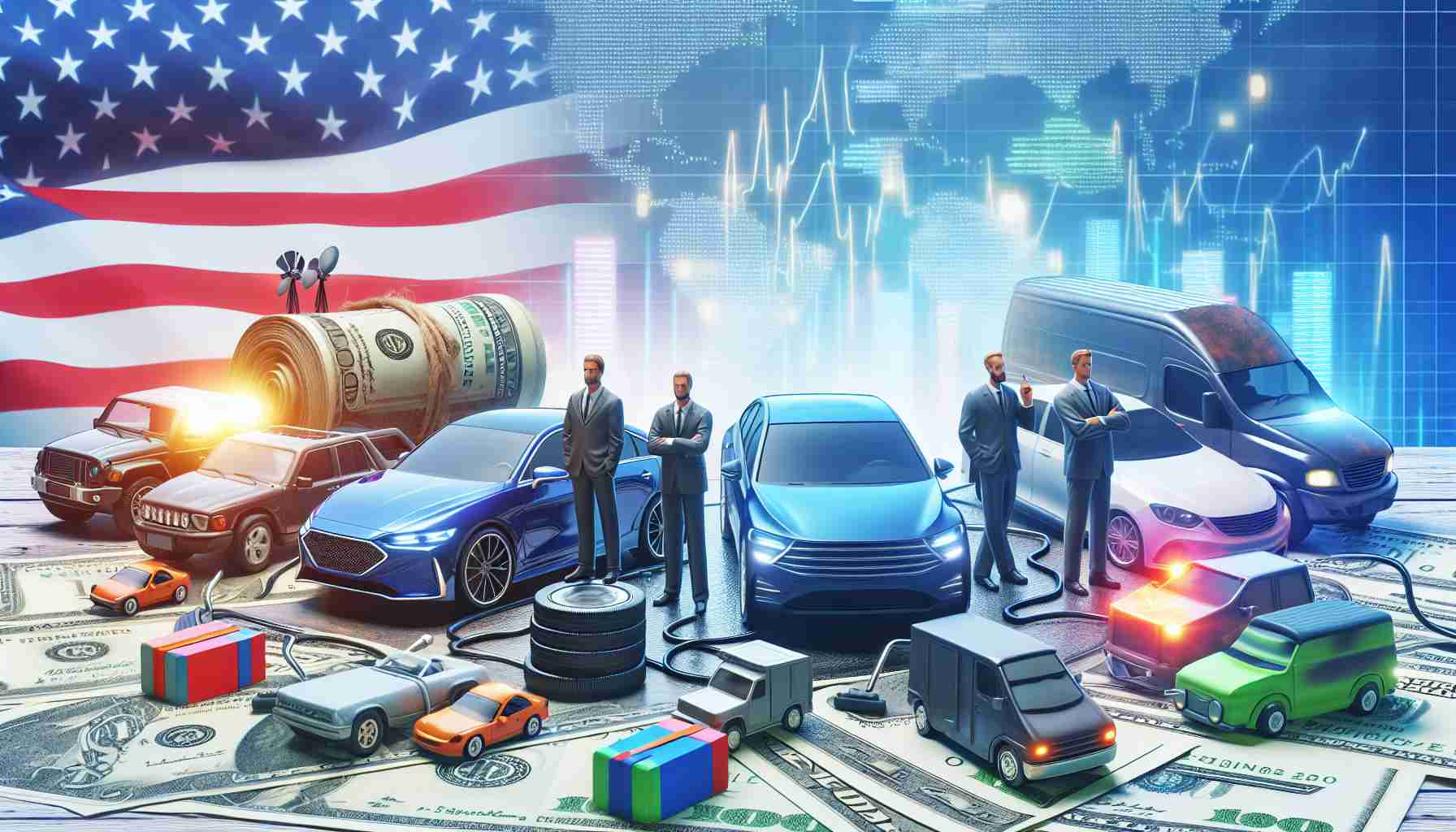Hyundai Motor Group and Korean battery manufacturers are calling for the relaxation of tax credits for electric vehicles in the United States. Their request stems from concerns about import bans on batteries from foreign rivals, including China. Hyundai emphasizes that replacing China as a supplier in a short period is not feasible, and the imposed restrictions on battery resources are impacting the global market.
The automotive conglomerate highlights that China is the largest producer of battery minerals in the world. Currently, they process and manufacture 100% of spherical graphite and 69% of synthetic graphite. Under the new law, electric vehicles eligible for full tax credits of $7,500 in the United States should not contain any battery components produced by “concerning foreign entities”. Starting from 2025, they should also not contain any critical minerals extracted, processed, or recovered from such countries.
Hyundai Motor is asking the United States government to introduce a temporary list of key minerals, such as graphite for batteries and battery components, that can be sourced independently of their origin. The company also proposes the implementation of a “de minimis” rule, which exempts critical minerals constituting less than 10% of the overall value of battery minerals. Additionally, Hyundai suggests creating a Treasury Department list of battery materials with untraceable origins.
Similar demands have been presented by LG Energy Solution, suggesting exemptions for low-value minerals such as cobalt, zirconium, tungsten, yttrium, titanium, graphite, and fluorite. The company states that it is difficult to determine the origin of these minerals as suppliers often withhold such information, citing trade secrets.
Meanwhile, SK On calls for the delay of implementing regulations on critical minerals until 2027, emphasizing that it would take at least three to four years to establish a supply chain that could replace Chinese graphite. Even then, meeting the demand from North America would still be challenging.
Experts note that there is a low likelihood that the United States will relent on the imposed restrictions, especially now with the approaching presidential elections. According to Professor Lee Ho-geun from Daeduk University’s chemistry department, political changes in such delicate matters are typically made after elections. Therefore, Korean companies should take additional actions to reduce their dependence on China during this period.
FAQ:
1. Why are Hyundai Motor Group and battery manufacturers appealing for the relaxation of tax credits for electric vehicles in the United States?
Hyundai Motor Group and battery manufacturers are concerned about import bans on batteries from foreign rivals, particularly from China. The current restrictions on battery resources are affecting the global market, and replacing China as the primary producer of battery minerals is challenging.
2. Which country is currently the largest producer of battery minerals worldwide?
China is currently the largest producer of battery minerals worldwide. They process and manufacture the majority of spherical graphite and synthetic graphite.
3. What are the new regulations concerning electric vehicles in the United States?
Starting from this year, electric vehicles eligible for full tax credits in the US should not contain battery components produced by “concerning foreign entities”. Additionally, from 2025, they should not contain any critical minerals extracted, processed, or recovered from such countries.
4. What solutions does Hyundai Motor propose?
Hyundai Motor is requesting the United States government to introduce a temporary list of key minerals, such as graphite for batteries and battery components, that can be sourced independently of their origin. The company also suggests implementing a “de minimis” rule for critical minerals constituting less than 10% of the overall value of battery minerals.
5. What demands does LG Energy Solution present?
LG Energy Solution suggests exemptions for low-value minerals such as cobalt, zirconium, tungsten, yttrium, titanium, graphite, and fluorite, citing the difficulty in determining their origin.
6. What does SK On propose?
SK On calls for the delay of implementing regulations on critical minerals until 2027, arguing that it would take time to establish a supply chain that could replace Chinese graphite.
7. What are the prospects for changes in the imposed restrictions?
Experts point out that there is a low likelihood of the United States relenting on the imposed restrictions, especially before the presidential elections. Korean companies are advised to take additional actions to reduce their dependence on China during this period.
Definitions:
1. Concerning foreign entities: Foreign manufacturing entities that raise concerns regarding the safety, quality, or political stability of battery supplies.
2. Critical minerals: Minerals that are essential for battery production and other electrical devices, the availability of which poses risks to economic activity and security.
3. Graphite: A mineral used in battery production, responsible for conducting electrical energy within battery cells.
Links:
– Hyundai Motor Group
– LG Energy Solution
– SK On
The source of the article is from the blog reporterosdelsur.com.mx
